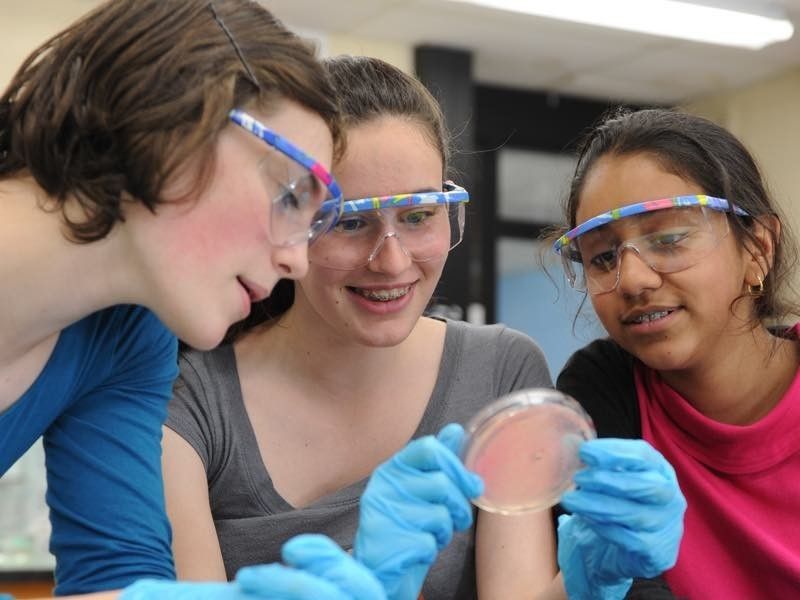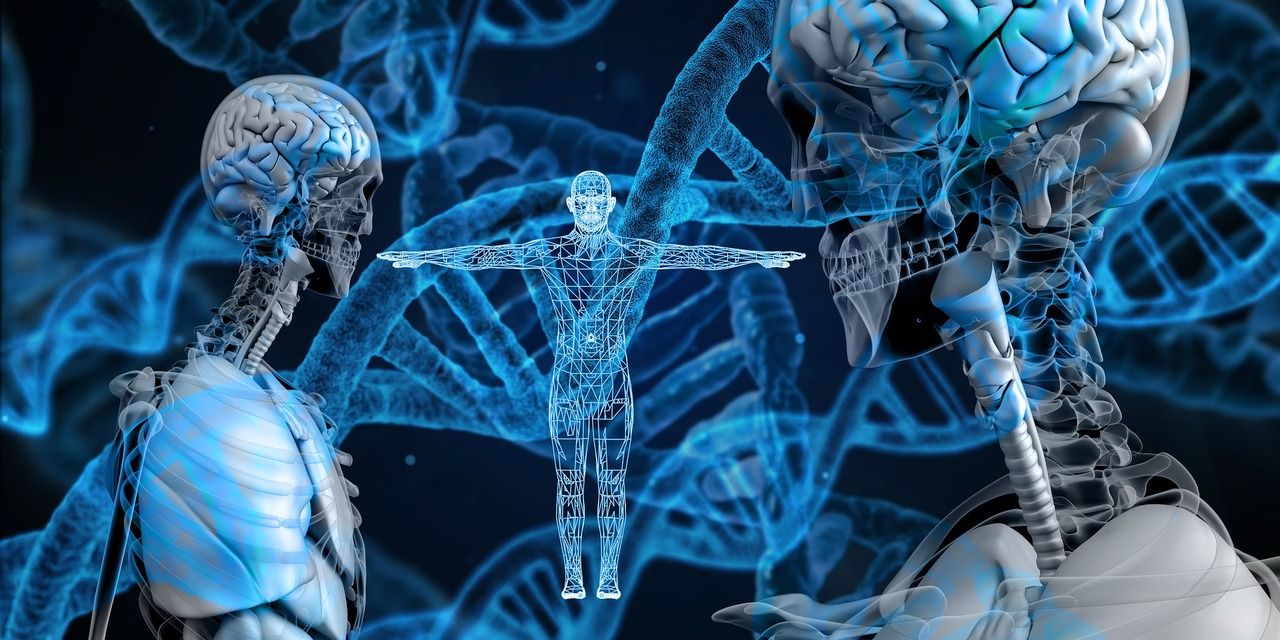News Brief: The Japan Aerospace Exploration Agency today launched a robotic cargo ship to the International Space Station, filled with more than five tons of supplies, equipment and experiments. Liftoff of Japan’s H-IIB rocket from the Tanegashima Space Center came at 2:52 a.m. JST Sept. 23 (10:52 a.m. PT Sept. 22). Minutes later, the HTV-7 cargo carrier (also known as Kounotori-7) separated from the rocket, heading for a Thursday rendezvous with the space station. Among the cylindrical craft’s payloads are new hardware to upgrade the station’s electrical power system, an experiment to study protein crystal growth at low temperatures, a life-sciences glovebox and an experimental sample return capsule.
Category: science – Page 123

Philanthropy Assignment: Inspire Tomorrow’s Leaders With Science
In a world increasingly driven by industries that rely on advanced technical learning and innovation, fluency in STEM fields (science, technology, engineering and math) becomes more vital every day. Yet our education system isn’t keeping up. Five years ago, a Business-Higher Education Forum study found that 80% of high school students either lacked interest or proficiency in STEM subjects. Meanwhile, a college and career readiness organization known as ACT reported last year that the number of students pursuing STEM careers is growing at less than 1% annually.
The Amgen Foundation is doing something about it. As the principal philanthropic arm of Amgen, the largest independent biotechnology company, the Amgen Foundation has been committed to inspiring the next generation of scientists and innovators by making immersive science education a focus of its social investments for almost 30 years. While Amgen has reached millions of patients around the world with biotechnology medicines to combat serious illnesses, such as cardiovascular disease, cancer and migraines, the Amgen Foundation has reached more than 4 million students globally—and it is poised to launch a new program called LabXchange with the potential to reach millions more.
“As a scientist, it’s clear to me that the most effective way to learn science is by doing it,” says David Reese, executive vice president of Research and Development at Amgen and member of the Amgen Foundation board of directors. “It’s time to transform the science learning experience. We need to move from information acquisition to application and exploration, from students as passive listeners to active participants in the learning process, from teachers as knowledge transmitters to facilitators and coaches.”


TESS Shares 1st Science Image in Hunt to Find New Worlds
NASA’s Transiting Exoplanet Survey Satellite, which began science operations in July, has released its first full frame image using all four of its cameras.

Stockton U. may build $41M science center at former Atlantic City airport
Stockton University will conduct a study on a proposed environmental center.
The Press of Atlantic City reports Atlantic City and the university received a $100,000 state grant last week to conduct the feasibility study on the new Marine and Environmental Science Center. According to university officials, the facility would cost about $41 million to build.
The facility would be built on a 15-acre portion of Bader Field. Stockton University’s current science facility in Port Republic was built in the early 1900s.

Japan’s science ministry seeks large budget increase, prioritizing massive neutrino detector
Japan’s government is facing serious fiscal challenges, but its main science ministry appears hopeful that the nation is ready to once again back basic research in a big way. The Ministry of Education (MEXT) on 31 August announced an ambitious budget request that would allow Japan to compete for the world’s fastest supercomputer, build a replacement x-ray space observatory, and push ahead with a massive new particle detector.
Proposed successor to Super-Kamiokande, exascale computer and x-ray satellite win backing.

Inside the ‘shadowy world’ of China’s fake science research black market
But Dr Oransky and colleagues are also calling for better peer review after research is published.
“We should reward people who come forward about problems in other people’s work, not in a punitive way, but actually looking at it and saying, ‘hey, that’s a problem, we should do something about it’, and give people the chance to correct the record,” he said.
In China, there’s a growing black market peddling fake research papers, fake peer reviews, and even entirely fake research results to anyone who will pay. Does the rise of fake and fraudulent science threaten the future of research?

European science funders ban grantees from publishing in paywalled journals
The move means grantees from these 11 funders—which include the national funding agencies in the United Kingdom, the Netherlands, and France as well as Italy’s National Institute for Nuclear Physics—will have to forgo publishing in thousands of journals, including high-profile ones such as Nature, Science, Cell, and The Lancet, unless those journals change their business model. “We think this could create a tipping point,” says Marc Schiltz, president of Science Europe, the Brussels-based association of science organizations that helped coordinate the plan. “Really the idea was to make a big, decisive step—not to come up with another statement or an expression of intent.”
Bold move is intended to trigger open-access tipping point.

The Fate of Free Will: When Science Crosses Swords with Philosophy
In some domains the two knowledge systems are complementary, but in others they might be headed for conflict.
- By Abraham Loeb on September 10, 2018